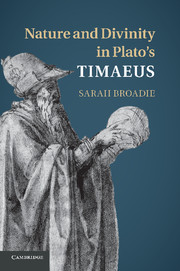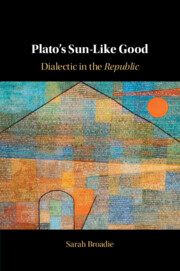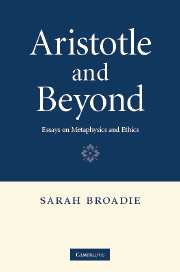Nature and Divinity in Plato's Timaeus
Plato's Timaeus is one of the most influential and challenging works of ancient philosophy to have come down to us. Sarah Broadie's rich and compelling study proposes new interpretations of major elements of the Timaeus, including the separate Demiurge, the cosmic 'beginning', the 'second mixing', the Receptacle and the Atlantis story. Broadie shows how Plato deploys the mythic themes of the Timaeus to convey fundamental philosophical insights and examines the profoundly differing methods of interpretation which have been brought to bear on the work. Her book is for everyone interested in Ancient Greek philosophy, cosmology and mythology, whether classicists, philosophers, historians of ideas or historians of science. It offers new findings to scholars familiar with the material, but it is also a clear and reliable resource for anyone coming to it for the first time.
- Opens up the profound difference between 'cosmological' and 'metaphysical' approaches to Timaeus' system
- Shows how Plato deploys the mythic themes of the Timaeus to convey fundamental philosophical insights
- Offers original comparisons between the theology of the Timaeus and Abrahamic theology
Product details
June 2014Paperback
9781107686199
316 pages
229 × 152 × 17 mm
0.43kg
Available
Table of Contents
- What lies ahead
- 1. The separateness of the demiurge
- 2. Paradigms and epistemic possibilities
- 3. The metaphysics of the paradigm
- 4. Immortal intellect under mortal conditions
- 5. The Timaeus–Critias Complex
- 6. The genesis of the four elements
- 7. Divine and natural causation
- In conclusion.




